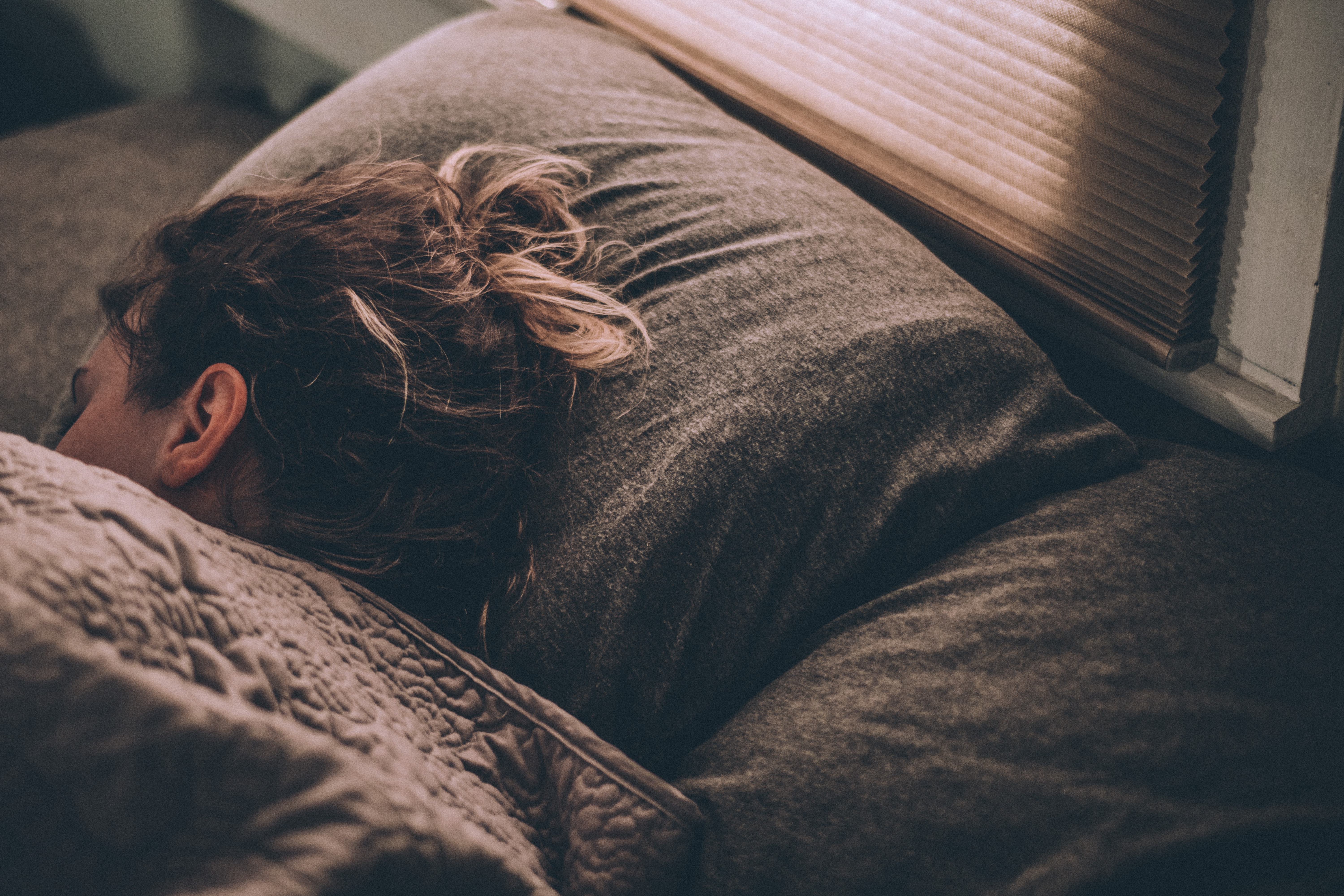
Scientists still don’t really understand why we sleep, but they are getting a much better handle on what happens when we sleep and when we don’t. During a healthy night’s sleep, our bodies relax, and tissue growth and repair occurs. Our human growth hormone levels go up to support this tissue repair and our cortisol levels drop so we can wake up alert. Also, sleeping well helps balance our appetites by regulating our levels of ghrelin and leptin, which affects our feelings of hunger and fullness the following day.
So what can do you do better support a healthy night’s sleep?
- Go to bed at a consistent time, noting that earlier is typically better for higher quality sleep. The average adult needs 7-9 hours of sleep.
- Cool your bedroom to 68-72 degrees to help your body cool to a naturally lower temperature while you sleep.
- Avoid the blue light of screens for an hour before you go to bed. There are phone settings and apps that mask the blue light, which helps, BUT screens are also providing stimulating content, which can keep us from winding down. Actually turning the screens off an hour before bedtime is better.
- Sleep in a completely dark room. Cover LEDs and clocks. Use blackout curtains. The darker the better for sleeping.
- If you awaken easily, try a white noise app or machine to help mask small noises throughout the night. For optimal white noise, choose a sound that is a consistent whir instead of rain or something where the sound is variable as it may actually cause you to wake up instead of sleep harder.
What should you avoid before bedtime?
What and when you eat also impacts your quality of sleep. Over the next several weeks try to tune in and correlate what you’re doing that makes for a better or worse night’s sleep.
- Caffeine. On average it takes people 4-6 hours to metabolize caffeine, but that’s not a hard rule. Genetic differences actually impact how we process it and 10 percent of the population has little to no sensitivity to caffeine, but others are hypersensitive to it. To optimize for a good night’s sleep, start avoiding caffeine after 1 p.m. daily.
- Sugar. If you find that you fall asleep easily, but awaken about 2 a.m. and have a hard time going back to sleep, a blood sugar crash may be to blame. While eating sugar can initially cause us to feel sleepy after a bit as your blood sugar level starts to drop it triggers the release of stimulating hormones like adrenaline, glucagon, cortisol and growth hormone. This causes you to wake up and can make it incredibly difficult or impossible to go back to sleep no matter how much you want to. Sugar after dinner is the worst offender, but sugar throughout the day also impacts your sleep cycle, which is another reason to focus on minimizing refined sugar from your daily diet.
- Alcohol. The impact of alcohol is very similar to sugar in terms of how it also causes a blood sugar crash after consumption. This is compounded by the fact that many cocktails have a lot of sugar in them in addition to the alcohol content. To help mitigate this impact, eating food with a drink helps, but if you think a glass of wine is going to help you have a better night’s sleep because it helps you unwind, know the affect is temporary and it’s going to cause you to wake up later. Instead try to unwind with some hot tea, meditating, reading or taking a bath.
- Dinner timing. Our brains naturally start producing melatonin in the evenings to signal to our body that it is time to sleep, however eating late in the evening actually suppresses the production of melatonin (in addition the previously mentioned blue light), which can make it harder to wind down to sleep. It also interferes with our body’s night time regulation of leptin and ghrelin, and trying to sleep with a full stomach can lead to acid reflux or other discomfort during the night to make sleeping less peaceful. Starting with breakfast, try to evenly spread your food throughout several meals over the course of the day instead of saving a large portion of it for dinner, which can set you up for a rough night and a harder next day.
Being mindful of how much sleep you’re getting makes a big difference in your day-to-day energy levels and health. You can even track it on your phone or through several apps. Contact your focused+fit coach for even more strategies they recommend.





